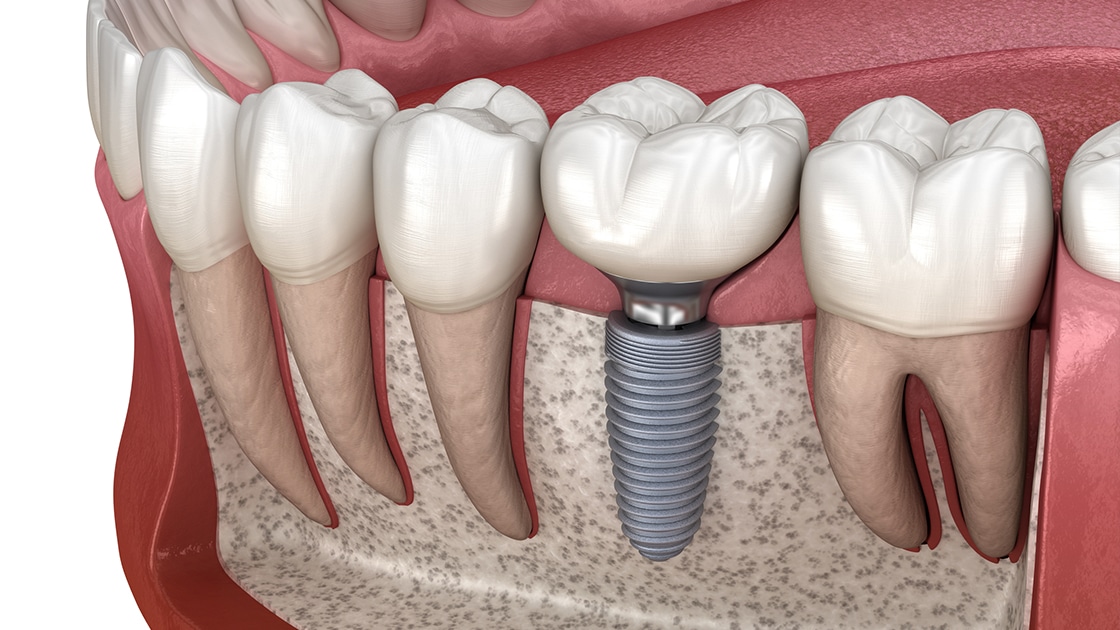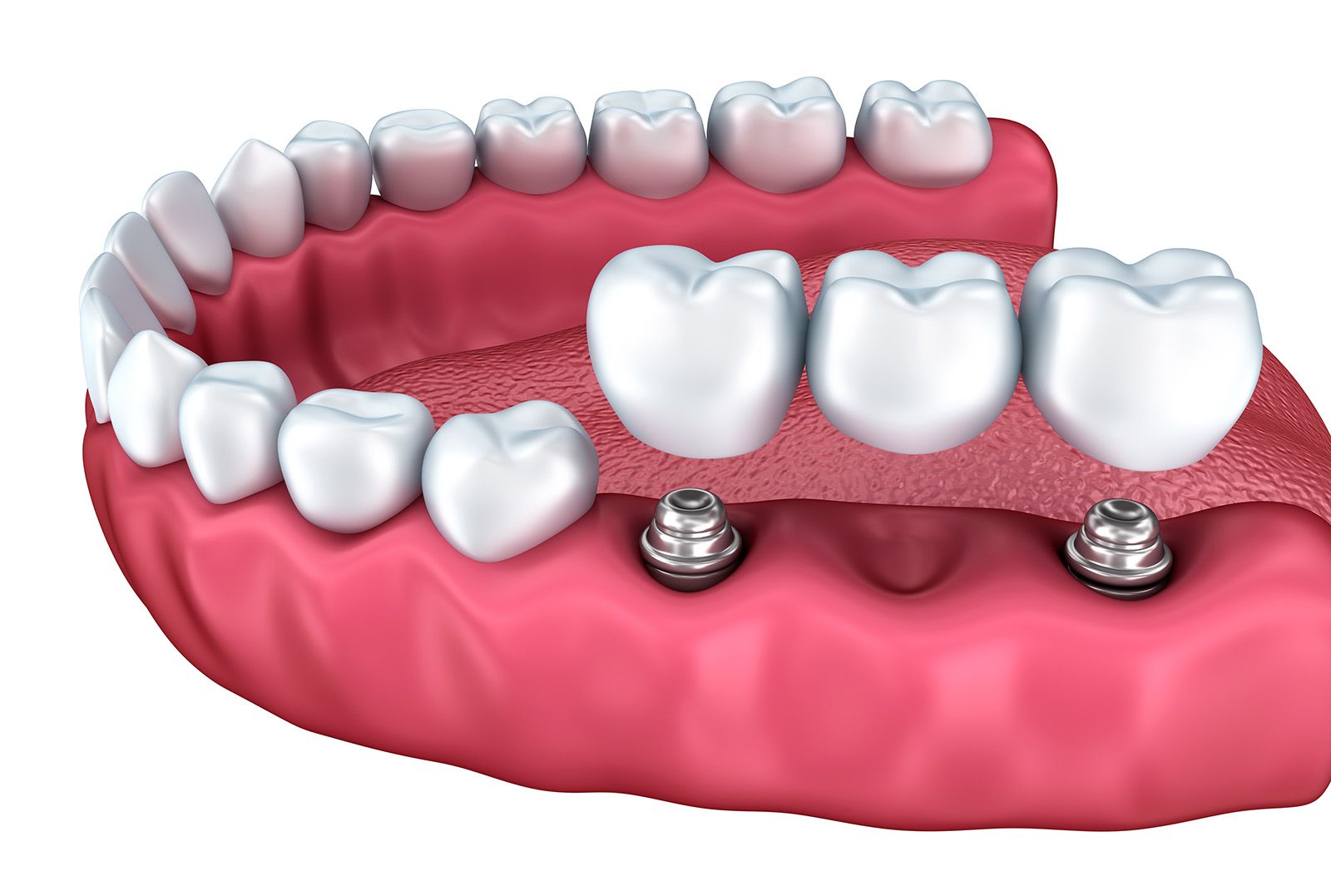Implants for Single vs. Multiple Teeth: Choosing the Right Dental Solution
Tooth loss can significantly impact your oral health, appearance, and overall quality of life. Fortunately, dental implants offer a long-lasting and natural-looking solution for restoring missing teeth. These titanium posts act as artificial tooth roots, supporting crowns, bridges, or dentures, and have become a gold standard in modern dentistry.
When considering dental implants, one of the first decisions patients face is whether to opt for a single-tooth implant or a multi-tooth solution such as an implant-supported bridge or denture. Each option offers unique benefits and suits different oral conditions and budgets.
This article compares single-tooth implants with implant-supported bridges and dentures, examining their advantages, drawbacks, and ideal use cases. Understanding these differences empowers patients to make informed decisions based on their specific dental needs and lifestyle preferences.
Understanding Dental Implants
Dental implants are biocompatible titanium posts that are surgically placed into the jawbone to replace the roots of missing teeth. Once integrated with the bone—a process known as osseointegration—these implants provide a sturdy foundation for prosthetic teeth.

There are two primary approaches to implant-based restorations:
-
Single-tooth implants, which use one implant to support a single crown.
-
Implant-supported bridges or dentures, which use fewer implants to support multiple prosthetic teeth or entire arches.
The typical implant process includes:
-
Consultation and imaging: X-rays and 3D scans assess bone density and oral health.
-
Implant placement: The titanium post is surgically inserted into the jaw.
-
Healing period: Lasting 3–6 months, allowing the implant to fuse with the bone.
-
Abutment and crown/bridge/denture attachment: The final restoration is fixed to the implant(s), restoring function and appearance.
The procedure timeline and approach may vary depending on the number of missing teeth and the patient’s oral condition.
Read more: Effective Joint Pain Relief Methods for Better Mobility
Single-Tooth Implants: Benefits and Considerations
A single-tooth implant is ideal for patients missing just one tooth. It involves placing one implant post into the jawbone and capping it with a custom-made crown that matches the surrounding teeth.
Benefits
-
Natural appearance and function: A single-tooth implant closely mimics the look and feel of a natural tooth. The crown is customized for color, shape, and size, ensuring a seamless fit with the rest of your smile.
-
Preserves adjacent teeth: Unlike traditional dental bridges, a single implant does not require grinding down neighboring teeth for support. This helps maintain the integrity of surrounding natural teeth.
-
Long-term durability: With proper oral hygiene and regular dental visits, single-tooth implants can last 15 years or more, often even a lifetime.
Considerations
-
Higher cost per tooth: While offering excellent performance, single-tooth implants can be more expensive on a per-tooth basis compared to bridge solutions.
-
Sufficient bone density required: The implant needs enough healthy jawbone for successful placement. Bone grafting may be needed in some cases, adding to cost and treatment time.
-
Surgical procedure and healing time: The process involves minor surgery and a healing phase of several months, during which the implant fuses with the bone.
Ideal Candidates
Single-tooth implants are best for patients who:
-
Have one missing tooth.
-
Possess good oral health and adequate bone volume.
-
Seek a permanent, natural-looking solution.
Read more: Understanding Individual Health Insurance: Benefits, Costs, and Smart Choices
Implant-Supported Bridges: Benefits and Considerations
An implant-supported bridge is designed to replace multiple adjacent missing teeth. Rather than placing an implant for each tooth, a few strategically placed implants support a row of prosthetic teeth.
Benefits
-
Efficient for multiple tooth loss: A bridge can span several teeth with just two or three implants, making it a practical solution for localized gaps.
-
Cost-effective: Fewer implants are needed compared to replacing each tooth individually, reducing surgical interventions and overall expenses.
-
Stable and functional: Implant-supported bridges offer a firm bite force and improved chewing and speaking abilities compared to traditional, non-implant-supported bridges.

Considerations
-
May require replacement over time: While the implants themselves are highly durable, the prosthetic bridge may wear out or break after 10–15 years.
-
Cleaning challenges: Cleaning around and under a bridge can be more difficult than maintaining individual implants, requiring special floss or brushes.
-
Bone health still matters: The success of the implant-supported bridge depends on sufficient bone mass where the implants are placed.
Ideal Candidates
Implant-supported bridges are suitable for patients who:
-
Are missing two or more adjacent teeth.
-
Want a more stable solution than removable partial dentures.
-
Have adequate bone support or are willing to undergo bone grafting if necessary.
Implant-Supported Dentures: Benefits and Considerations
For individuals missing most or all of their teeth, implant-supported dentures offer a significant upgrade over traditional removable dentures. These dentures are anchored by implants, usually 4 to 6 per arch, offering increased security and functionality.
Benefits
-
Full arch replacement: Ideal for patients with complete or near-complete tooth loss, implant-supported dentures can restore an entire upper or lower jaw.
-
Improved stability: Unlike conventional dentures, these do not shift or slip during eating or talking, thanks to the support of implanted posts.
-
Enhanced chewing and comfort: The increased bite force and stability enable patients to enjoy a wider variety of foods without discomfort.
Considerations
-
Higher upfront costs: Implant-supported dentures are more expensive than traditional dentures, due to surgery and implant placement.
-
Maintenance needs: Over time, the denture may require relining or replacement, and implants must be professionally cleaned and monitored.
-
Surgical recovery time: As with all implants, healing is required after surgery, and patients must be healthy enough to undergo the procedure.
Ideal Candidates
This option is ideal for patients who:
-
Have lost most or all of their teeth in one or both arches.
-
Want a more secure alternative to removable dentures.
-
Have sufficient jawbone or are candidates for bone grafting procedures.
Choosing the Right Option
Selecting the right dental implant solution depends on several personal and clinical factors:
-
Number and location of missing teeth: A single-tooth implant may suffice for one missing tooth, while multiple adjacent teeth call for a bridge, and full arch loss suits dentures.

-
Oral health: Bone density, gum health, and overall oral condition must be evaluated. Bone grafting may expand eligibility.
-
Budget and insurance coverage: Costs vary significantly between options, and not all procedures may be fully covered by dental insurance.
-
Lifestyle and preferences: Consider long-term goals, esthetic expectations, and willingness to maintain your restoration.
A thorough dental consultation is essential. Dentists use X-rays, CBCT scans, and intraoral imaging to assess bone structure and plan the treatment. Ask your dentist:
-
How long will the implant last?
-
What are the maintenance requirements?
-
What risks or complications should I be aware of?
These discussions help tailor the solution to your specific goals and conditions.
Conclusion
Dental implants offer versatile and reliable solutions for restoring missing teeth. Whether you need a single-tooth implant, an implant-supported bridge, or implant-supported dentures, each option provides its own set of advantages and considerations.
While single implants provide unmatched natural appearance and longevity for individual teeth, bridges offer a practical way to restore multiple adjacent teeth. For full-arch replacement, implant-supported dentures combine function, aesthetics, and stability.
Ultimately, the best solution depends on your unique dental health, preferences, and lifestyle. A personalized consultation with a dental implant specialist is the best step toward achieving a confident, functional smile. Don’t hesitate to explore your options and make an informed choice for your oral health future.
DEALS DELIVERED TO YOUR INBOX.
Subscribe now for top-notch shopping & Investing advice. Receive hot Vouchers into your wallet
By submitting your information you agree to the Terms & Conditions and Privacy Policy
Related Articles
.png)
Exploring the Rich World of Vietnamese Iced Coffee: Top Variations and Recipes
.jpg)
The Best Christmas Toys Deals in 2024 - Don't Miss Out on These Holiday Savings

Historic Castles to Visit in Scotland: Top Iconic Fortresses & Must-See Ruins Guide

15 Stunning Perfume Mist Aesthetic Top Ideas to Elevate Your Fragrance Game

Speak from the Shadows: Ouija Board Tattoo Ideas for the Spiritually Bold

Mini Cake Ideas: 10 Top Ideas for Bite-Sized Delights
Popular Brands
View all
Carl's Golfland
6 Coupons Available

Snov.io
7 Coupons Available

Vidnoz AI
12 Coupons Available

Golf Training Aids
11 Coupons Available

Human Golf Robot
5 Coupons Available

GetAFollower
5 Coupons Available
Popular Articles
View all
Top 10 Summer Wedding Cake Designs That Taste as Beautiful as They Look

Summer 2026 Fashion Trends – What’s Hot, Fresh & Worth Wearing

Best Coastal Drives in Tasmania for Breathtaking Ocean Views

Glow Beyond the Surface: Top Aura Effect Makeup Looks to Radiate Energy and Style

Effortlessly Beautiful: Mastering the Art of the Natural Makeup Look

Save on Christmas Morning Essentials: Coffee, Pastries, and More
LATEST

Last updated: Apr 29, 2025

Last updated: Jul 7, 2025

Last updated: May 5, 2025
 (2).png)
Last updated: Jul 7, 2025

Last updated: Jun 11, 2025

Last updated: Aug 27, 2025
